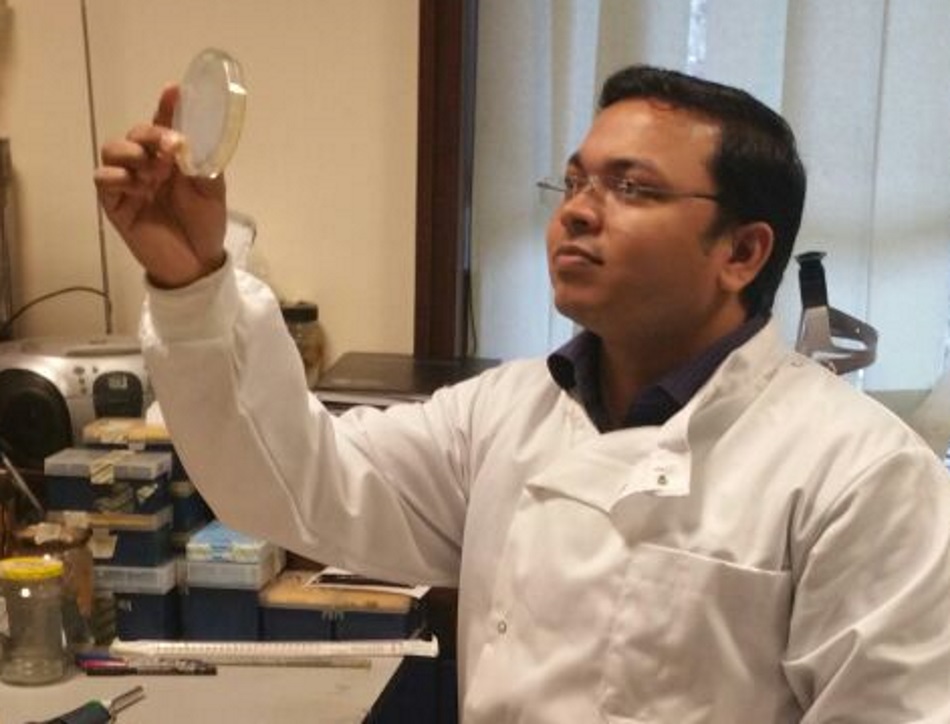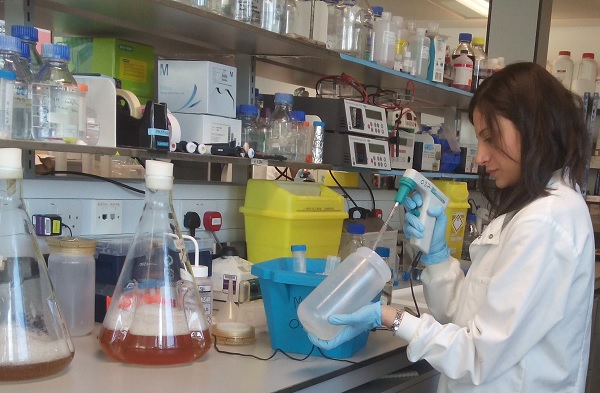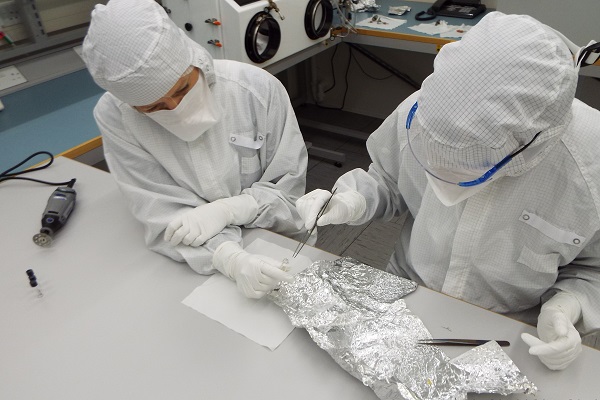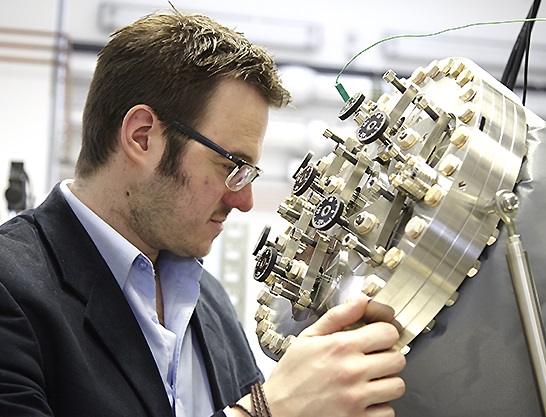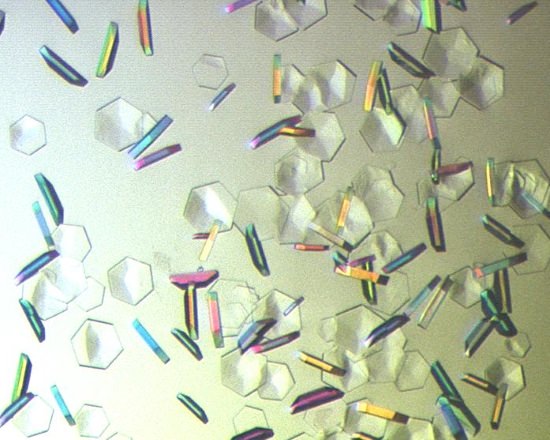About the scheme
The Newton International Fellowship (NIF) programme provides support for outstanding early career researchers to make a first step towards developing an independent research career through gaining experience across international borders. The fellowships enable researchers to access expertise, gain new perspectives and build long-lasting collaborative relationships.
This scheme is jointly run by the British Academy and the Royal Society.
The overarching aim of the Newton International Fellowship programme is to attract and retain emerging talent in the UK and build a globally connected, mobile research and innovation workforce. The objectives are to:
- Attract talented international early career researchers to establish and conduct their research in the UK
- Support early career researchers to pursue high-quality and innovative lines of research
- Provide opportunities to acquire new skills and knowledge through training and career development
- Foster long-term relationships through networking opportunities and the Newton International Fellowships alumni programme.
Applications for the humanities and social sciences should be made to the British Academy.
If you are unsure about which academy to apply to, contact info@newtonfellowships.org.
The Royal Society recognises that diversity is essential for delivering excellence in science, technology, engineering and mathematics (STEM). The Society wants to encourage applications from the widest range of backgrounds, perspectives and experiences to maximise innovation and creativity in science for the benefit of humanity. We regularly review and revise policies and processes to embed equity, diversity and inclusion (EDI) principles in all aspects of the grant making process and ensure all talented applicants have an equitable chance to succeed as per assessment criteria.
See below for details of adjustments we can provide for disabled applicants.
ISPF-Funded and Privately-Funded Fellowships
We welcome applications from all countries.
The Royal Society also has funding through the International Science Partnerships Fund to support additional Newton International Fellowships for applicants applying from Switzerland.
The Royal Society’s partnership with the K C Wong Education Foundation also allows us to fund additional fellowships for applicants applying from China. These awards are termed Royal Society K C Wong International Fellowships.
It is not possible to apply directly for one of these fellowships. They are selected from the same pool of applicants as the Newton International Fellowships and are of equal value and prestige.
Changes to the scheme
Fellowships awarded in the 2024 round will be two years in duration.
What does the scheme offer?
The maximum award value will be £280,000 over two years.
Funds can cover:
- basic salary as set by the host institution and associated on-costs
- research expenses
- relocation and visa costs for Newton International Fellows and their dependents (partner and children). The total grant cap may be exceeded to cover relocation/visa costs if this is well justified in the application
- estate costs and indirect costs
Further detail on these changes is available in the scheme notes and in our Royal Society Funding Guidance (costing policy)
We provide flexibility to accommodate personal circumstances including part-time working for health reasons or caring responsibilities. There is provision for maternity, paternity, shared parental, adoptive or extended sick leave, as well as financial support for childcare costs that arise from attending conferences and research visits.
Royal Society Research Fellows also have the opportunity to access a range of career development and engagement opportunities including training on leadership, science communication and public engagement, and activities coordinated by our science policy and schools engagement teams. For further detail on these additional benefits, read our opportunities page.
Successful applicants may also be eligible to receive alumni funding to support continued networking activities with UK-based researchers following completion of their fellowship.
This scheme is for you if:
- You have a PhD, or will have a PhD by the time the funding starts
- You have no more than seven years of active full time postdoctoral experience at the time of application (discounting career breaks, but including teaching experience and/or time spent in industry on research)
- You are based outside the UK
- You do not hold UK citizenship
- You are competent in oral and written English
- Your research is within the Royal Society’s remit of natural sciences, which includes but is not limited to biological research and biomedical sciences, chemistry, engineering, mathematics and physics. For a full list, please see the breakdown of subject groups and areas supported by the Royal Society. Applications for the humanities and social sciences should be made to the British Academy.
All applications are developed with the support of a UK sponsor. The Sponsor should work with the lead applicant to develop the project proposal and should provide mentoring, support, and guidance throughout the duration of the award.
Applicants can be of any nationality and those requiring a visa are eligible to apply for a Global Talent Visa under the fast-track process of endorsement.
Read the scheme notes and FAQ for further information on eligibility. Please ensure that you meet all eligibility requirements before applying.
You will apply through our application and grant management system, Flexi-Grant®.
See the ‘Application and assessment process’ page for a general overview of the application and selection steps and below for details specific to this scheme.
Assessment of your application will be overseen by one of the four Newton International Fellowship Panels. Following eligibility checks, applications are initially reviewed and assessed by two members of the Extended Committee who have the most appropriate expertise. Shortlisted applications are then discussed at a Panel meeting where recommendations for funding are made.
Further detail on the application and assessment process is available in the scheme notes.
The Royal Society welcomes applications from scientists with disabilities and provides adjustments to ensure that they can participate fully in the selection process. If you need an adjustment when accessing the application form, attending interviews, or for any other part of the application process, please contact the Grants team on info@newtonfellowships.org or +44 20 7451 2666. Adjustments can include, but are not limited to:
- extension of the deadline
- additional support to complete the application form
If you have further questions regarding the scheme, please contact the Grants team on info@newtonfellowships.org or visit our contact us page.

